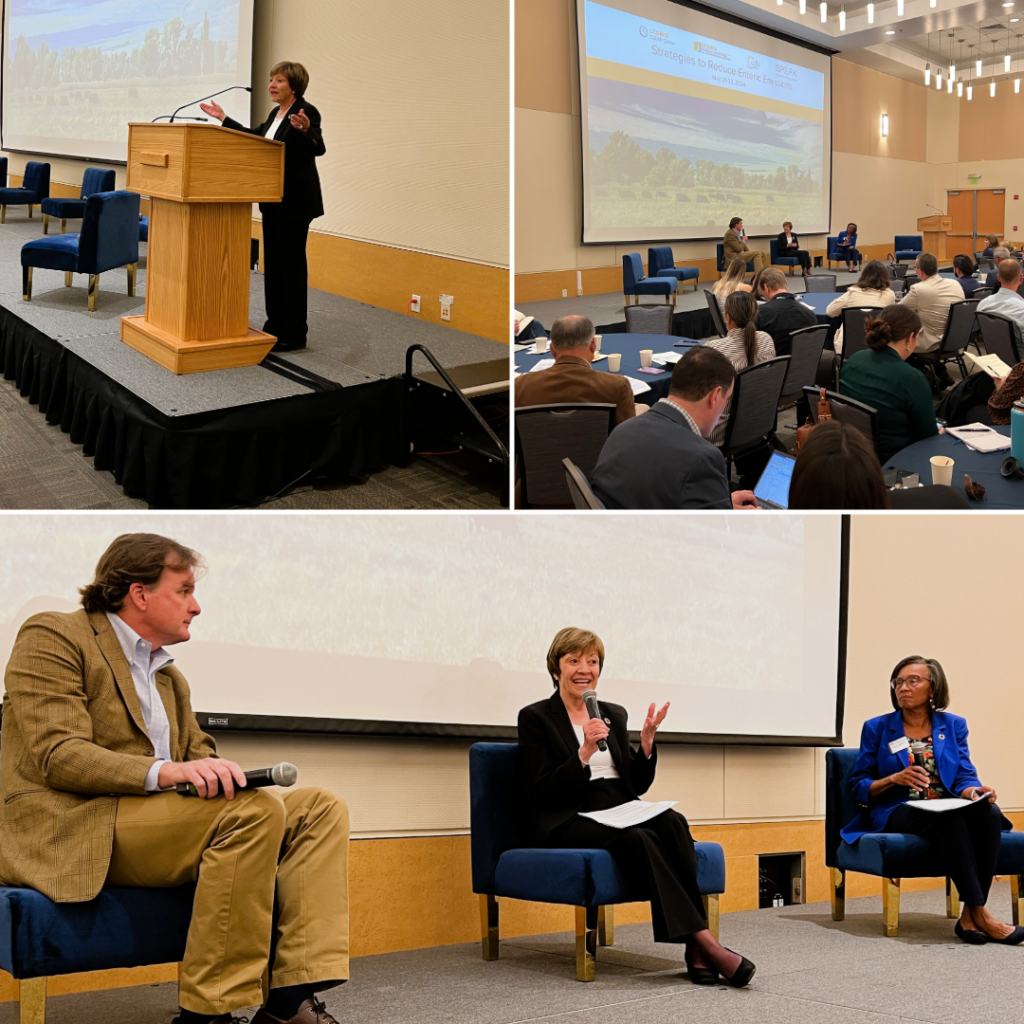
With approximately 270 attendees at the UC Davis State of the Science Summit: Strategies to Reduce Livestock Methane, California Department of Food and Agriculture Secretary Karen Ross, kicked off the two-day event (May 21-22) this morning at UC Davis. Hosted by the CDFA and the UC Davis College of Agricultural and Environmental Sciences, the event gathers experts and stakeholders to discuss strategies for reducing methane emissions in animal agriculture.
The summit began with a welcome address by CDFA Deputy Secretary for Climate and Working Lands Virginia Jameson, followed by an opening presentation from Secretary Ross.
The Secretary talked about the importance of partnerships to address climate. “Government has to get the policy right as a signal to markets. Using the cap-and-trade approach has generated revenues from auctions to invest in our transition to carbon neutrality. That’s been especially important for California agriculture, where nearly one billion dollars in total investments have gone to climate smart ag practices and programs,” said Secretary Ross. “We cannot do our work without research and technical assistance. Our friends in academia are critically important to generating that objective, evidence-based science and data, as well as the social science of how behavior changes happen.”
Secretary Ross also stressed the significance of the private sector and the importance of voluntary incentive approaches to help make a difference. “But in all of this, we cannot forget the technical assistance providers,” added Secretary Ross, and thanked the USDA California Natural Resources Conservation Service among other organizations providing technical assistance to farmers, ranchers and the agricultural community.
On the summit’s key theme regarding methane reduction, Secretary Ross thanked dairy farmers in California for the progress the state has made in reducing livestock methane emissions. “Our dairy families have been leaders; they’ve done it with developers of dairy digesters, and they’ve done it with Resource Conservation District, Cooperative Extension and others to really support the adoption of these alternative manure management practices.”
On methane reduction targets, Secretary Ross said that since 2016, to meet the 40 percent reduction goal, California is approximately halfway there with dairy digesters. And the state, which has invested $227 million for 140 projects, with $489 million in matching funds altogether with alternative manure and healthy soils programs, has helped reduce, over a ten-year period, approximately 25 million metric tons of carbon dioxide equivalents.
Robert Bonnie, Under Secretary for Farm Production and Conservation at the USDA, followed Secretary Ross and provided a national perspective on enteric methane. Secretary Ross and Under Secretary Bonnie helped set the stage for a series of informative presentations and panel discussions, with an engaging fireside conversation, moderated by Dean Helene Dillard, of the College of Agricultural and Environmental Sciences at UC Davis.
Today, the Summit continues with more sessions and opportunities for collaboration. Tomorrow marks the final day, where participants will discuss research and strategies that can help the dairy and beef industries achieve their climate goals. CDFA Undersecretary Christine Birdsong is scheduled to deliver the closing address.


